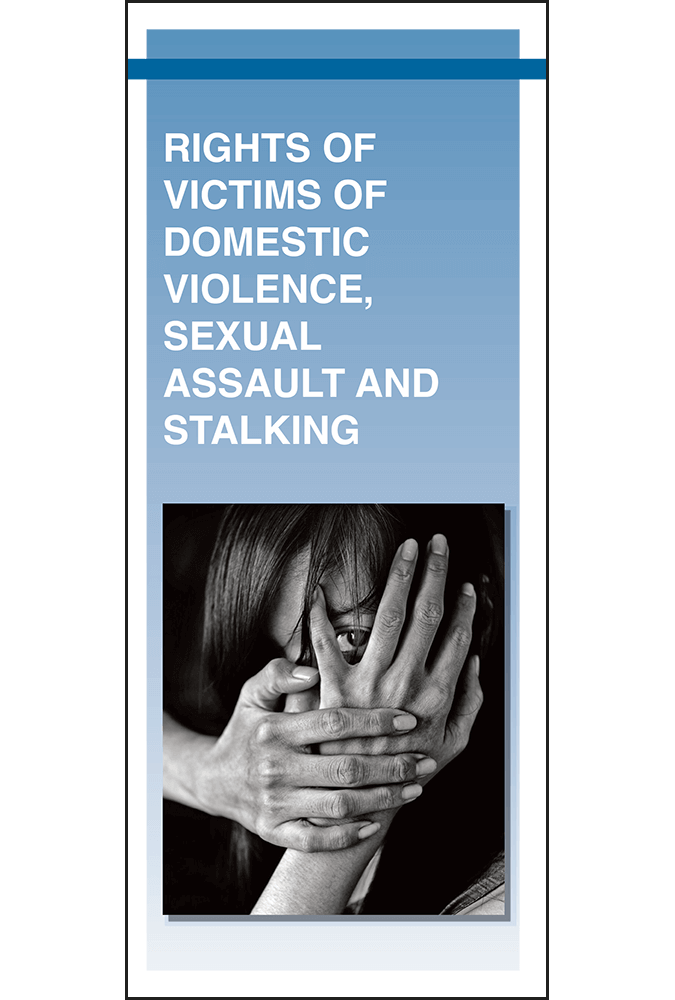Who needs the California Survivors of Violence Right to Leave and Accommodations Pamphlet?
Employers are required to provide the California Survivors of Violence Right to Leave and Accommodations Pamphlet, officially known as, “California Survivors of Violence and Family Members of Victims Right to Leave and Accommodations” to new employees at time of hire, to all employees annually, and to existing employees upon request, to inform them of their rights under Govt. Code § 12945.8(K)(2).
What is covered in the Pamphlet?
The California Survivors of Violence Right to Leave and Accommodations Pamphlet describes the rights of employees who are victims of crime or abuse to take time off from work for specified purposes to protect themselves and their family member’s health, safety, or welfare.
Who is covered? An employee is covered if he/she:
- works for an employer with 25 or more employees, and
- is a victim of crime or abuse, or whose family member is a victim.
A family member is defined as a “child, parent, grandparent, grandchild, sibling, spouse, domestic partner, or designated person.”
What is covered? A covered employee is entitled to take time off from work to:
- develop or carry out steps to prevent future violence;
- prepare for or attend civil, criminal, or administrative hearings;
- obtain medical care, counseling, mental health services, shelter, victim advocacy, or legal aid;
- treat injuries, secure safe housing, relocate or engage in the process of securing a new residence due to the qualifying act of violence, enroll kids in a new school, or arrange child/dependent-adult care tied to the violence.
How are covered employees protected?
- An employee can use available any accrued and available accrued paid sick leave or vacation, personal leave, or compensatory time off, or take unpaid time off while seeking covered services.
- An employee should give their employer advance notice before taking time off but cannot be discriminated or retaliated against if the employee can subsequently provide proof that the time off was used for a covered purpose (i.e., doctor’s note, court order, or employee’s own written statement).
- An employee has the right to reasonable workplace accommodations to ensure the employee’s safety at work (i.e., new phone number, door locks, shift changes, or transfers).
- An employee is protected from discrimination or retaliation because the employee or the employee’s family member is a victim, because the employee asked for time off, or because the employee requested help or changes in the workplace from their employer.
- An employee can file a compliant for retaliation or discrimination against their employer and obtain more information from the Civil Rights Department, using the contact information provided.


